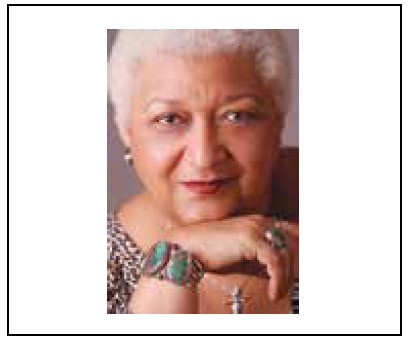
By Jewelle Gomez–
I’ve long been a fan of Victoriana including the writing of George Eliot and Charles Dickens. They had things in common with James Baldwin that I loved—erudite use of language and searing social observations. After public television adopted one of her novels, Cranford starring Dame Judi Dench, I fell in love with Mrs. Gaskell (Elizabeth Gaskell). Her depictions of the interior lives of both society and poor women are still engaging after more than 100 years. What some would dismiss as gossip, Mrs. Gaskell (like Jane Austen earlier) mined for clues to what was really on women’s minds. I’ve lately added Victorian mysteries to my bedside stack.

I know a subtext of Victorian England was the slave trade and anti-Semitism and other exploitations, but I deal with that in my non-fiction. I want my bedtime reading to be relaxing and not make me leap from my bed to take up arms.
Television is catching up with endless heteronormative romances of Edwardian and Victorian England. So now there’s Gentleman Jack, a series about the outrageously open lesbian life and loves of Anne Lister, a contemporary of the infamous Ladies of Llangollen. Lister (1791–1840) has already been the subject of a documentary and a dramatic film based on her lengthy diaries—more than five million words covering two decades. To explicitly describe her sexual romps with gentlewomen and other private thoughts (like digestion), Lister cleverly developed a code only broken years after her death. The prodigious diaries are historically one of the longest social commentaries ever written and have been added to the registry of the UNESCO Memory of the World Program.

At a time when women were rarely allowed to leave the house alone, Anne Lister—one of our first known gender nonconforming women—traveled the world dressed primarily in men’s clothes, in relentless pursuit of new adventures and new lesbian lovers. Her interests, in addition to sex, were renovating her family estate, mining, canals, and the emergence of railways. Now we can return to those interests (especially the sex) in the show’s second season. Gentleman Jack stars Suranne Jones, one of British television’s sly treasures; she embodies the urgency of seduction at the same time, with a wink, maintaining the cover of a prim Victorian.
Of course, the real Anne Lister did what many queer people have done: lead a decadent and privileged private life and contradictorily express quite conservative political opinions. The TV series hasn’t gotten to these complexities yet. We’re still being treated to Gentleman Jack clomping through the countryside trying to save her family’s meager estate in Yorkshire … maybe by marrying the delicate heiress? As well as her triumph over a violent bully when he waylays her on the road. She can take a punch in the nose as well as she gives one.

The Economist called Gentleman Jack an “unlikeable protagonist,” which is perhaps true especially from the male perspective. She’s sharp-tongued, arrogant, and unrelenting in her pursuit of what she wants. But from the perspective of a contemporary lesbian feminist, Lister’s contradictions are sexy as well as frustrating. The time has long past when women are one-dimensional characters around which others build their fantasies.
In Lister’s inimitable style, refusing to be bound by men’s conventions, she maneuvered a secret, marital commitment with Ann Walker at a church in York on Easter Sunday. Her insistence on solidifying the bond with her lesbian lover, even if not legal, created an enduring lesbian pilgrimage stop. https://tinyurl.com/yudw8ray
Stream the first season to see again just how, behind an unlocked parlor door, Jack seduces the young, modest Ann Walker. Walker later becomes her lover and remains at Jack’s side until her death on a trip to Russia. When I watch Captain Jack stride through her small town in waistcoat, top hat and tails in the 1820s, her head held high, it’s a reminder that lesbians can—and always could—do anything.
Jewelle Gomez is a lesbian/feminist activist, novelist, poet, and playwright. She’s written for “The Advocate,” “Ms. Magazine,” “Black Scholar,” “The San Francisco Chronicle,” “The New York Times,” and “The Village Voice.” Follow her on Instagram and Twitter @VampyreVamp
Published on April 21, 2022
Recent Comments